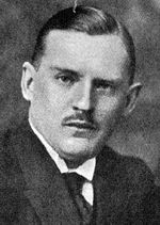
By the age of twenty-two, he was already among the strongest chess players in the world. During the 1920s, he won most of the tournament
s in which he played. In 1927, he became the fourth World Chess Champion
by defeating Capablanca
, widely considered invincible, in what would stand as the longest chess championship match held until 1985.
In the early 1930s, Alekhine dominated tournament play and won two top-class tournaments by large margins.
Chess for me is not a game, but an art. Yes, and I take upon myself all those responsibilities which an art imposes on its adherents.
![]()
Chess first of all teaches you to be objective.
![]()
I study chess eight hours a day, on principle.
![]()
I'm very glad you asked me that, because, as it happens, there is a very simple answer. I think up my own moves, and I make my opponent think up his. (on being asked how it was that he picked better moves than his opponents)
![]()
The fact that a player is very short of time is, to my mind, as little to be considered an excuse as, for instance, the statement of the law-breaker that he was drunk at the time he committed the crime.![]()
To win against me, you must beat me three times: in the opening, the middlegame and the endgame.
![]()
With his death, we have lost a very great chess genius whose like we'll never see again.![]()

